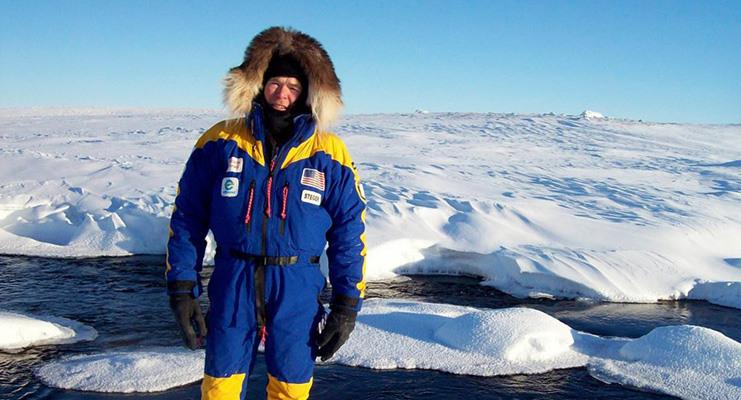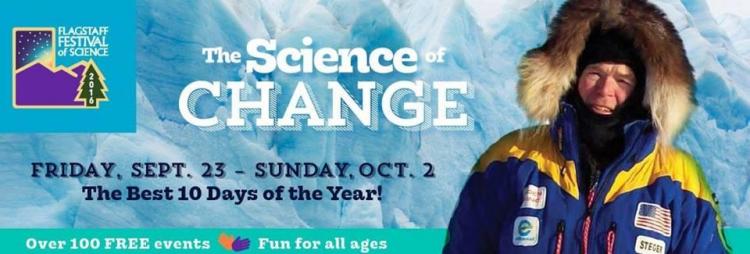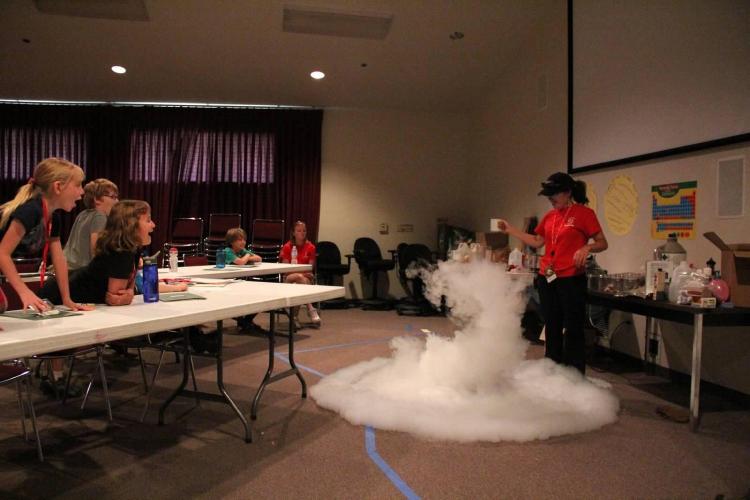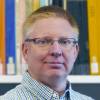Flagstaff Festival of Science
For anyone with even a remote interest in natural history, the Flagstaff area boasts an embarrassingly rich array of wonders.

This event will be virtual this year.
September 18-27, 2020
These range from miles of rock strata that stretch across the arid plains to the remains of long-extinct creatures entombed within these layers; from wickedly dark skies whose brilliant stars serve as natural spotlights to an assortment of life zones that run the gamut from parched deserts to arctic-alpine highlands.
The icy world Pluto, the largest stand of Ponderosa pine trees in the world, the best-preserved meteorite impact crater on Earth, mysterious Mars, a world center for biohazard research, and Therizinosaur—the Edward Scissorhands of dinosaurs—all have strong ties to the area.
Coupled with this bounty is a community-wide appreciation of these resources. Since Flagstaff’s early days, scientists have traveled to and, in many cases, stayed here to carry out research. Today, Flagstaff boasts one of the most prolific scientific communities, per capita, in the world. NPR’s Science Friday host Ira Flatow once observed, “You can’t get a cup of coffee in Flagstaff without bumping into a scientist.” And the residents have openly celebrated these scholars, embracing opportunities to engage with these them while establishing a scientific consciousness for the community.
Perhaps it comes as no surprise, then, that one of the country’s oldest and most distinguished festivals celebrating science—the Flagstaff Festival of Science—happens here. Now in its 27th year, the Festival is a ten-day event stuffed with more than 90 activities for people of all ages. And to the delight of its thousands of participants, every one of these is free.
Organizers create a different theme each year and for 2016 it is The Science of Change. Activities will explore the latest research, technology, solutions, and adaptations for life on our dynamic planet. The Festival runs from September 23 to October 2 and includes open houses, talks, field trips, hikes, telescope observing sessions, and even performing arts productions.

The Science of Change kicks off at NAU’s Ardrey Auditorium on Friday, September 23 at 7 p.m. with the Shoemaker Keynote Presentation, named in honor of the late Gene Shoemaker, a geologist who lived in Flagstaff and helped found the field of planetary science. Some past keynote presenters include Apollo 12 astronaut Alan Bean, fossil hominid expert and “Lucy” discoverer Don Johanson, water resource advocate Alexandra Cousteau (granddaughter of legendary conservationist Jacques Cousteau), and marine archaeologist James Delgado.
This year’s speaker is a bit of a blast from the past for seasoned Festival participants: arctic explorer Will Steger returns to Flagstaff after serving as the Festival’s first keynote speaker in 1990. Over a span of 50 years, he has led some of the most important polar expeditions in history, often traveling by kayak and dogsled. In 1986, for example, he led the first dogsled journey to the North Pole without resupply, an effort sponsored by W.L. Gore & Associates of Flagstaff and outfitted in waterproof GORE-TEX fabric.
Steger’s talk, Eyewitness to Climate Change, will introduce his breathtaking exploration, touching on elements of adventure, technological advances, hope and development. His message perfectly captures the mission of the Flagstaff Festival of Science, which is “to connect and inspire the citizens of northern Arizona, particularly youth, with the wonders of science and the joy of scientific discovery.”

William Harris, CEO and president of Science Foundation Arizona, an organization that has financially supported the Festival for years, captured the significance of this effort. He said, “If our young people are well educated and grounded in science and math, they will discover and build the future.”
The Festival of Science is one of Flagstaff’s signature events, celebrating that embarrassingly rich array of wonders spread across northern Arizona. It is open to both residents and out-of-town guests and well worth checking out. A complete list of activities can be found at http://scifest.org./
About the Author

Kevin Schindler
Kevin Schindler is a historian and writer who has called Flagstaff home since 1995. A fixture at Lowell Observatory during that time, he has also been an active member of the Flagstaff community, serving on several boards and committees. He has written more than 400 magazine and newspaper articles on a variety of subjects, particularly science, local history, and baseball. The author of three books, he also contributes a regular astronomy column to the Arizona Daily Sun.